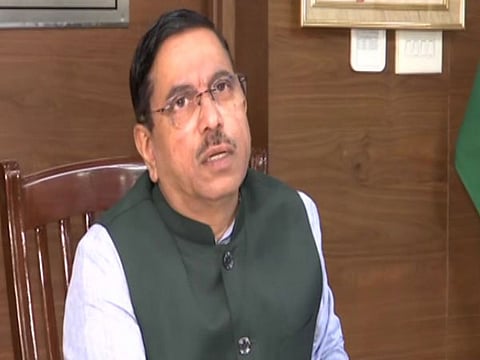

NEW DELHI: Union Minister for Consumer Affairs, Food, and Public Distribution, Prahlad Joshi has instructed all e-commerce companies to conduct self-audits to analyse and eliminate Dark Patterns to comply with consumer protection regulations. This directive follows a stakeholder meeting held in Delhi.
There has been a notable increase in consumer complaints regarding Dark Patterns reported on the National Consumer Helpline, which prompted the minister to take action.
The stakeholder meeting aimed to develop more effective strategies to address manipulative design practices used by digital platforms. Joshi also proposed the formation of a joint working group to educate e-commerce companies about these issues.
A “Dark Pattern” refers to a deceptive design technique employed in user interfaces (such as web pages) that misleads users or coerces them into making unintended choices. This practice undermines consumer autonomy, decision-making, and overall choice.
Some examples of dark patterns include making it difficult for consumers to understand or cancel transactions, and employing features like infinite scrolling, autoplay videos, or constant notifications. Government has identified 13 specific dark patterns.
The Department of Consumer Affairs on Wednesday convened the meeting representatives of all stakeholders, including major e-commerce companies such as Amazon, Swiggy, Flipkart, Zomato, MakeMyTrip, Meta, WhatsApp, Ola, and Apple, as well as industry associations, Voluntary Consumer Organisations, and National Law Universities, for a talk on eliminating deceptive online practices.
The government has already developed detailed guidelines to address Dark Patterns. He urged all companies to fully comply with the guidelines and integrate them into their internal governance and consumer protection mechanisms.
Recently, the Central Consumer Protection Authority (CCPA) issued a notice to taxi and bike aggregator companies Uber and Rapido for allegedly pressuring users to pay a tip in advance for faster service.
Joshi stated that such practices are considered “unfair trade” and must be stopped. He emphasised that tipping should be optional, with consumers deciding the amount based on their service experience.
After an online survey in 392 districts and consulting 2.30 lakh consumers, LocalCircles, which raises consumer awareness, reports that Edtech, Travel, Airlines, eCommerce, Quick Commerce, Online Banking & Payments, taxi Apps, and OTT platforms have reported highest number of Dark Patterns.
Deceptive practices
False Urgency
Basket Sneaking
Confirm Shaming
Forced Action
Nagging
Bait and Switch
Subscription Trap
Hidden Cost
Disguised Ads
Interface Interferences
SAAS billing
Trick Questions
Rogue Malware